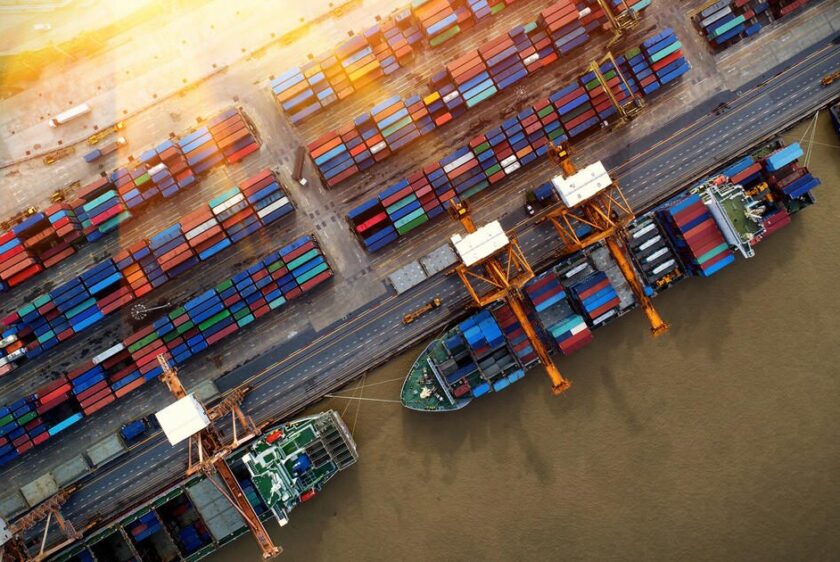This audio was created using Microsoft Azure Speech Services

Smart ports are missing opportunities to leverage data.
Ports are digitalizing at a rapid pace. While adopting digital technology can bring substantial benefits, such as supporting equipment automation and improving power asset maintenance, it also creates a problem for ports. Connected smart ports generate massive amounts of data – a majority of this is wasted because the data is captured but not analyzed.
Data can be difficult to manage because of the sheer volume. It’s also a complex task because data comes from diverse systems that may not be connected, shared or well structured.
Data management systems transform data into actionable information that improves operational efficiency
Data management systems (DMS) are used for real-time monitoring, predictive maintenance, and performance enhancement. DMS can calculate, contextualize, and extract operational and business insights that can be shared with stakeholders to foster collaboration and efficiency. For example, data management improvements can potentially increase performance by 5-10%. This increase occurs when data analysis uncovers new efficiencies, such as how ports can reduce travel times for rail mounted gantry cranes’ (RMG) movements.
The technology also helps eliminate operational silos to ensure both internal and external departments and stakeholders have seamless, easy access to information. By streamlining data processes, smart ports can expedite decision-making, reduce operational turnaround times, and improve overall operational efficiencies.
Ports are under pressure to decarbonize to meet stakeholders’ and ports’ sustainability goals and comply with regulations. Improved data management brings new decarbonization opportunities by enabling faster sustainability data discovery, collection, and analysis. While smart ports’ connected technology is typically already generating sustainability data, the information is not consistently gathered and processed into actionable insights. Without this analysis, it is difficult for ports to pinpoint factors that can reduce their carbon footprint, like their energy usage.
Data management system’s reporting capabilities also support green ports’ sustainability initiatives. The technology can generate customizable and easily shareable reports. For example, the data can be used to determine the amount of emissions generated by ports’ equipment. This is valuable not only for measuring environmental improvements, but also because ports typically need to provide proof that they’re following maritime sustainability regulations, such as the FuelEU Maritime initiative and U.S.’s Clean Shipping Act of 2022 bill.
Ports worldwide are already using these solutions to increase profit margins and improve maintenance.
Adani Ports is the largest private port operator in India. Adani is positioning itself for the rapid growth the port had planned over the next decade by investing in both new port construction and port automation that ensures all facilities can meet peak performance levels. To do so, Adani Ports has implemented technology that helps collect data throughout the port from intake to distribution. It also provides real-time performance monitoring and analysis. The result is increased port throughput, increased revenue and increased profit margins at the ports, and reduced maintenance costs and downtime.
TraPac, one of the first automated container terminals in North America, is also benefiting from better data management. Its complex automation environment depends on the precise coordination of multiple systems from different vendors. The existing systems and tools were not able to provide the required operational visibility and insights. By deploying and integrating a data management system, TraPac was able to improve operational awareness, digitalize maintenance workflow, and improve maintenance-interval compliance.
Learn more about how smart ports are benefiting from better data management
In today’s dynamic maritime industry, efficient port operations are crucial for success. Learn more.



